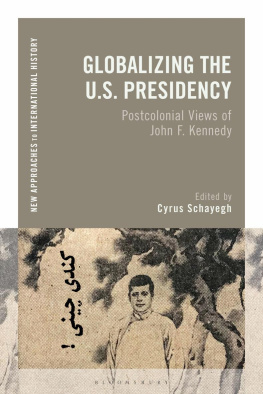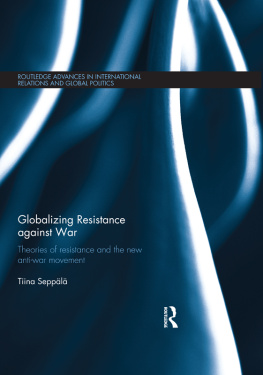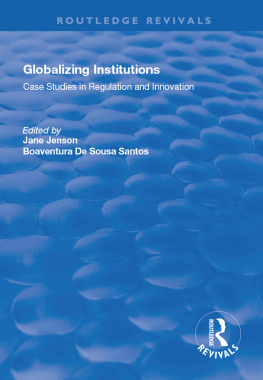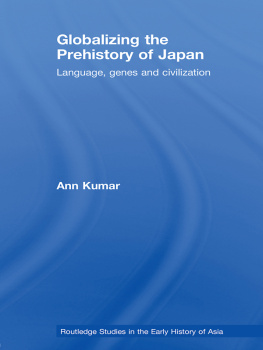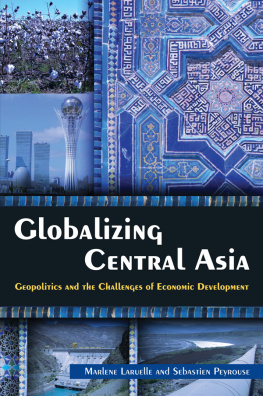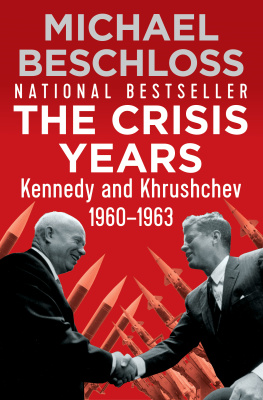Stanford University Press
Stanford, California
2015 by the Board of Trustees of the Leland Stanford Junior University.
All rights reserved.
No part of this book may be reproduced or transmitted in any form or by any means, electronic or mechanical, including photocopying and recording, or in any information storage or retrieval system without the prior written permission of Stanford University Press.
Printed in the United States of America on acid-free, archival-quality paper
Library of Congress Cataloging-in-Publication Data
Kennedy, Michael D., author.
Globalizing knowledge : intellectuals, universities, and publics in transformation / Michael D. Kennedy.
pages cm
Includes bibliographical references and index.
ISBN 978-0-8047-9236-3 (cloth: alk. Paper)
ISBN 978-0-8047-9343-8 (pbk. : alk. paper)
1. Knowledge, Sociology of. 2. GlobalizationSocial aspects. 3. Intellectuals. 4. Intellectual lifeSocial aspects. 5. Universities and collegesSocial aspects. I. Title.
HM651.K454 2014
306.4'2dc23
2014015003
ISBN 978-0-8047-9344-5 (electronic)
GLOBALIZING KNOWLEDGE
Intellectuals, Universities, and Publics in Transformation
Michael D. Kennedy
Stanford University Press
Stanford, California
ADVANCE PRAISE FORGLOBALIZING KNOWLEDGE
Path-breaking in its depth and sophistication, Globalizing Knowledge makes a key contribution to an evolving field of research and conceptualization. We need new categories of analysis, which Michael Kennedy now gives us, to work with the growing mass of data about our global condition.
Saskia Sassen, Columbia University, author of Expulsions: Brutality and Complexity in the Global Economy
University presidents have said that globalization was a goal for at least two decades. It is now a reality that is rapidly changing higher education. But with all the attention to student flows, rankings, competition, and fundraising, the primary importance of globalising knowledge can be forgotten. Michael Kennedys book puts the focus where it needs to be: on how intellectuals and universities work in different global contexts to inform publics and educate students, and on how the global organization of academic work shapes both knowledge itself and the responsibilities of intellectuals. These are issues that academics cant afford to ignore.
Craig Calhoun, President, London School of Economics and Political Science
Kennedy argues masterfully that the urgent project of building global knowledge can and should preserve the richness and texture of vernacular ways of knowing. He demonstrates simultaneously his intense commitment to the engaged, context-sensitive social science and keen awareness of the intellectual and ethical dilemmas unavoidable in the production of universally germane knowledge.
Jan Kubik, Professor and Director, School of Slavonic and East European Studies, University College London
Michael Kennedys wise reflections onand broad experience in working throughsome of the key issues at stake in our new global knowledge economy are timely and critical. Kennedy provides readers with important insight into what global knowledge should genuinely mean at a time of pervasive (if also clichd) globalization. Globalizing Knowledge offers fascinating perspectives on issues of monumental significance not just to our societies, polities, and economies but also to our planet.
Nicholas B. Dirks, Chancellor, University of California, Berkeley
Information has become the most powerful global asset. With this book, Michael Kennedy makes a plea to all to reach beyond the existing limitations of both academic and political imaginations to seek new sociopolitical transformations. As long as there is a willingness to consciously explore alternatives, humanity will be able to fulfill the promises of progress, resulting in a better world for all. Globalizing Knowledge is a major contribution.
Alfred Gusenbauer, Former Chancellor of Austria
Globalizing Knowledge is a tour de force, grappling with one of the most important challenges of our timehow to develop and mobilize knowledge produced in the university for global problems, and to do so in an equitable way. Michael Kennedy commands an enormous experience in promoting global networks of knowledge, and is well versed in the debates about their possibilities and limitations.
Michael Burawoy, University of California, Berkeley
In a changing world, Michael Kennedy introduces an innovative theoretical framework to increase equality in modern countries while also preserving liberty and freedom. Case studies focusing on different countries allow the reader to better understand the context of Kennedys ideas.
Ricardo Lagos Escobar, Former President of Chile
Drawing upon his vast experiences and wide readings, Michael Kennedy has written a cogent and compelling book on the globalization of knowledge(s) and of universities. At once empirically rich and theoretically provocative, it is a necessary book for our challenging and confusing times.
John Lie, University of California, Berkeley
Figures and Tables
Figures
Tables
Preface
Globalizing knowledge.
The term is powerful. It is most commonly used when we speak of bringing insights from around the world into a universitys research and teaching. But like all concepts useful for mobilizing resources, globalizing knowledge conceals much while allowing its connotations to do a lot of work. They do too much work for the critically inclined.
Knowledge depends on information. We are all familiar with the ways in which the information and communication technology revolution has affected the global spread of images, symbols, sounds, ideologies, repertoires, and even ideas. But when we speak of knowledge, we imply a superior sort of understanding. It is more refined, rigorous, and reflexive. Knowledge cant flow so easily as other virtual expressions because it must be sifted, reassembled, and assessed. And that means that its nodes of accumulation and transformation matter even in a world of information flows.
This mattering does not always work in traditionally knowledgeable ways. As reputations globalize, the distinction of knowledge nodes seems to depend more and more on forms of acknowledgment relatively divorced from knowledge as such. Distinction is dissolved into recognition. Recognition morphs into celebrity. Hit lists of the worlds most important universities and thinkers then become the most visible arbiters of knowledge quality. This globalizing effect transforms the meaning of knowledge. It flattens the worlds learning and commodifies its producers and their products. It also hides the abiding knowledge inequalities that shape our sense of the world.
Many in my discipline of sociology resisted using the word globalization for its distraction from the agency and privilege involved in the worlds transformation. Words like imperialism, or research programs associated with concepts like the world system, highlighted who got what, thus begging us to explain why. Globalization, in contrast, implied a reorganization to which all had to adapt to win, or even to survive. It distracted us from questions not only of who loses but how victory might depend on others defeats. Globalizing knowledge has a similar problem.
When people talk about it, or use other euphemisms, like internationalizing a university, they conjure a worldly image in which insights flow from across the world to the node they inhabit. However, interests, tastes, prejudices, and power shape that learning flow. They repackage learnings assembly in ways that are hardly neutral, much less scientific or universal. Globalizing knowledge easily masks ethnocentrisms expression, just as it has hidden cosmopolitanisms limits.


